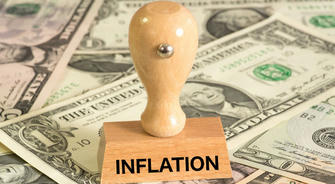-
 Courses
CoursesNurses Are in Short Supply! Do You Know How Many People Have Turned Their Lives Around with Caregiving Courses in the U.S.?
The U.S. healthcare system has been facing a significant shortage of nurses for years, and this shortage continues to grow each year. In fact, the American Nurses Association (ANA) predicts that by 2030, the U.S. could be short by as many as 1.1 million nurses. While this creates a challenge, it also presents an opportunity for individuals seeking a new career path. Thanks to the rise of caregiving and nursing assistant training programs, many people have been able to turn their lives around and join the healthcare workforce, making a meaningful impact on their communities. Let’s explore how caregiving courses are offering new hope to people eager to enter the healthcare industry and the role they play in addressing the shortage.
-
 Finance
FinanceWhy Saving More Could Actually Make You Poorer: Unmasking the Inflation Trap
Imagine This…
You work hard, set aside money every month, and watch your savings grow. You tell yourself, “I’m doing the right thing.” After all, saving money is what responsible adults do, right?
But here’s a little-known truth: If your money is just sitting in a regular savings account, you could actually be losing purchasing power year after year. In other words, saving without earning a sufficient return can leave you worse off in real terms.
-
 Finance
Finance401(k), IRA, Roth? Retirement Accounts Are More Complex Than American TV Series? Understand Them in One Article!
Below is an English version of the fully updated guide on retirement accounts, now enriched with opposing viewpoints and critical analysis. The tone remains clear and reader-friendly. Long-form narrative (around 4,000 words) has been preserved in structure—case studies, tools, risks, and reflection questions—while ensuring clarity and completeness. You’ll find this version suitable for publication or detailed guidance.
-
 Finance
Finance"Buying a Home is an Asset": The Overlooked Financial Truth
The Great American Housing Paradox
The traditional view of homeownership as the ultimate wealth-building strategy is undergoing radical reevaluation. While real estate can be a powerful investment vehicle, the equation has fundamentally changed in today's economic landscape.
The Hidden Math of Homeownership
Annual Costs Most Owners Underestimate:
Property taxes (avg. 1.1% of home value)
Maintenance (1-4% of home value)
Insurance ($1,200+ annually)
Opportunity cost (5-7% stock market returns)
Example: A $500k home costs ~$25k/year excluding mortgage - equivalent to $2,100/month rent.
-
 Finance
FinanceFollowing the Rich Might Be the Riskiest Money Move You'll Ever Make
The Seductive Trap of Wealth Imitation
Scroll through LinkedIn, browse bookstore bestsellers, or tune into any business podcast - you'll encounter a flood of financial advice packaged as foolproof formulas.
"Build a startup like I did."
"Reject the 9-to-5 grind."
"Go all-in on emerging markets."
The messaging is compelling. Authoritative. Backed by personal success stories. If these strategies created fortunes for others, surely they'll work for you too... correct?
Reality tells a different story.
The instinct to replicate wealthy individuals makes psychological sense - it feels like accessing a proven shortcut. But these "blueprints" often ignore critical differences in starting points, resources, and safety nets that made their success possible.
-
 Finance
Finance⏳ Forget Stock Prices: Time Is Your Most Powerful Investment Ally
🌱 The Overlooked Truth: Wall Street's Best-Kept Secret
The greatest investment paradox of our era hides in plain sight: while financial media obsesses over daily market gyrations, the most powerful wealth-building force requires no watching at all. A groundbreaking MIT study tracked 10,000 retail investors for 15 years, revealing an astonishing pattern - those who checked portfolios least frequently earned nearly double the returns of constant monitors.
Warren Buffett's office contains no Bloomberg terminal, but prominently displays two symbolic items: a 1950s-era compound interest chart and a clock permanently set to "long-term." This visual manifesto encapsulates his philosophy: "Successful investing is about time in the market, not timing the market."
-
 Finance
FinanceThe Silent Tax: How Inflation Is Robbing You Without You Noticing
Inflation is often called the “silent tax” — a hidden force quietly eroding your purchasing power and the value of your assets over time. Unlike income tax or sales tax, inflation doesn’t send a bill or statement; it simply reduces what your money can buy, little by little, year after year. This invisible tax affects everyone, from everyday consumers to seasoned investors, and understanding its impact is crucial to protecting your wealth and financial future.
This article explores inflation as a silent tax, explaining how it affects your assets in real life, sharing relatable examples, and offering insights to help you stay ahead of this stealthy economic challenge.
-
 Finance
FinanceWhat If the Credit Score System Was Built to Confuse You?
Let’s be honest — do you really know how your credit score is calculated?
Most people don’t. You pay your bills, avoid big debts, and still — somehow — your score drops 20 points without explanation. You check your credit report, and it reads like financial gibberish. You try calling the credit bureaus, but you don’t get a straight answer.
It almost feels like the system is designed to be confusing on purpose.
Well, maybe it is. Or at least, it works better for certain industries when it's not easy to understand.
Let’s break down why America’s credit score system often feels like a black box, and more importantly, what you can do to protect yourself.
-
 Finance
FinanceWhen Black Swans Fly: How to Protect Your Wealth in an Uncertain World – A Risk Management Lesson for Everyone
Forecasting markets with precision is nearly impossible. History is littered with events that reshaped financial landscapes almost overnight—from the 2008 global crisis to geopolitical conflicts and pandemics. Such shocks highlight the limits of traditional risk models, which often fail when conditions change abruptly.
Rather than trying to predict these surprises, a stronger approach is to build systems designed to withstand them.
-
 Finance
FinanceWhen Markets Panic: Why Humans Are Hardwired for Financial Disaster
The Evolutionary Mismatch Between Our Stone-Age Brains and Modern Markets
(What if I told you your financial mistakes aren't really your fault? Blame 200,000 years of evolution—and some very predictable psychological traps.)




